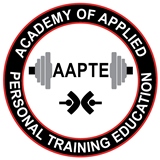FAQs
Questions
- Why should I take RTS® instead of one of the other "Personal Training" certifications?
- Which "Personal Training Certifications" do you recommend?
- Is RTS® a nationally recognized certification?
- Is RTS® an
Answers
- Why should I take RTS® instead of one of the other "Personal Training" certifications?
-
RTS is NOT a personal training certification, but as one course attendee stated, "This should be REQUIRED information for all trainers! I have three nationally accredited certifications and I have never heard any of this before. This changes everything!"
By definition, personal training certifications attempt to certify you in a specific career. Trainer, therapist, coach, doctor... we are not concerned about your actual choice of career or how you label yourself. We are concerned with raising the level of knowledge and practical skills of everyone implementing exercise to that of a true Exercise Professional
RTS is not a substitute or replacement for other programs.
And they are not substitutes, replacements, nor equivalents of RTS.A certification is a piece of paper that allows you to call yourself a trainer.
RTS TEACHES YOU HOW to BE the trainer EACH CLIENT needs and DESERVES!
- Which "Personal Training Certifications" do you recommend?
-
If you are interested specifically in entering the fitness industry, we recommend the AAPTE Personal Training Certification. It's NCCA and REPS accredited, and the only accredited certification that is university based (Hofstra University in New York).
The primary reasons for RTS endorsement:

1. AAPTE is the only personal trainer certification that is completely unbiased in content. Over the last 20 years most have become biased toward "functional" and "performance" training, leaving an entire end of the Exercise Continuum® either completely unexplored or misrepresented by so-called "corrective" exercise.
2. Like RTS, AAPTE focuses on developing the skills of thinking and decision making while other certifications focus on protocols.
Visit AAPTE at AAPTE.org
- Is RTS® a nationally recognized certification?
-
Yes and no. That depends upon what you think we certify in?
Not only does RTS® offer courses nationwide, but RTS® courses and seminars are held around the world from Brazil to Taiwan, London to Saudi Arabia, Toronto to Mexico City. RTS will be most familiar to those who are advanced in their studies, are familiar with the field of Exercise Mechanics, and/or have been in the industry for decades.
However, our goal is education, not practitioner career certification. We are a continuing education provider, and while we offer optional competency exams for each level of participation, we do not certify you in a career title like "certified personal trainer", etc.
"Ultimately it's not about certification... it's about education!"™
There are two reasons why we offer certifications as options:
- To create a minimum competency requirement of those who choose to represent themselves with the letters RTSL1, L2, L3, or L4 distinction behind their names.
- And because, unfortunately, education is only attractive to many trainers if there's a piece of paper dangled like a proverbial carrot. But the goal should not be to place more letters behind your name, rather to get a comprehensive and advanced education focused on your clients or patients.
- Is RTS® an
-
As indicated above, RTS is in the education business, not the career certification business. Certification is available only because some individuals desire to formally call themselves a Resistance Training Specialist and utilize the distinction an "RTS" level behind their names, and to do so they must prove the respective level of competency. In other words, we certify you in us, RTS, competency in the principles skills that we deem as evolved and evolving minimum standards for each level of our unique specialty education. We do not pretend to certify you in a specific job or career title.
RTS is not a substitute or replacement for other programs.
And they are not substitutes, replacements, nor equivalents of RTS.For the role of certifying you in the specific career of personal training, we have chosen to partner with NCCA and REPS accredited AAPTE, which incorporates only the most basic level of RTS information in its program.
Furthermore, it should be noted that "accreditation" is very misleading. Accreditation is the process by which an organization's business, administration, and examination practices are assessed to determine that they are free of physical, racial, or socioeconomic discrimination. It DOES NOT indicate that the information provided by the organization is correct or even remotely accurate (as proven by the leading accredited certifications.)
And as a final important note: we cannot lower our standards to that required of accreditation. Accreditation does NOT allow for practical/hands-on examination of the skills of exercise delivery and problem solving because these are deemed too subjective. Ironically, it is this skill set than ultimately defines a trainer or therapist and makes knowledge come to life in the outcome of client or patient. It is impossible to know the skills of the trainer without a hands-on exam at some level of education.
